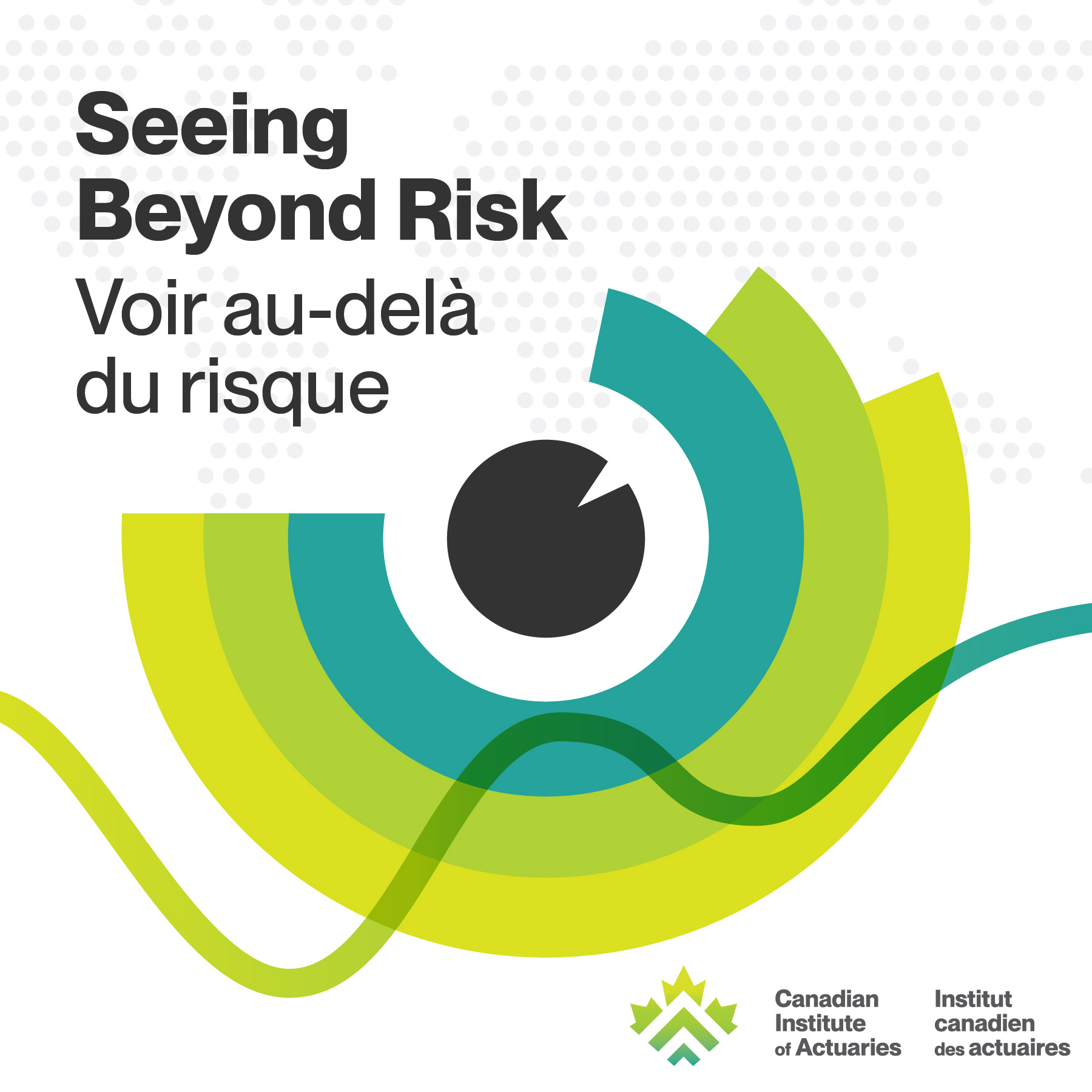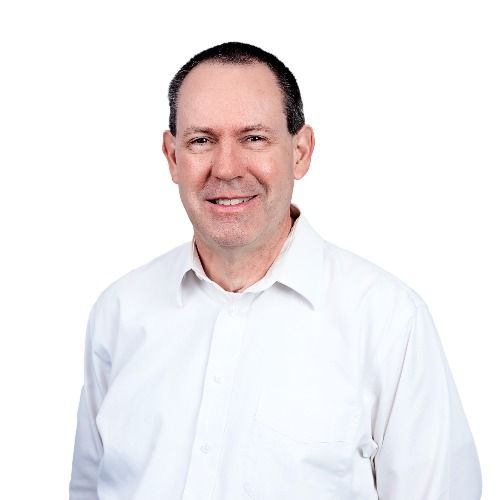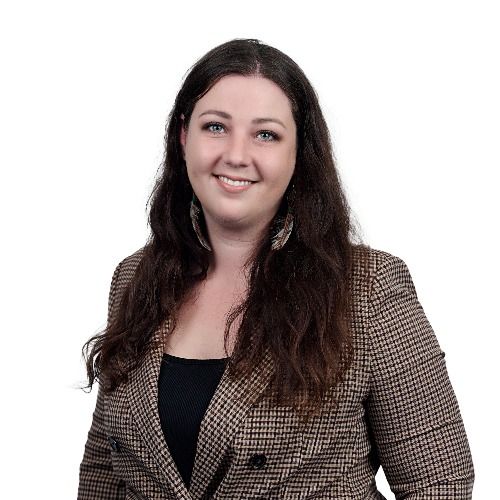Episode 170: The CIA on the international stage
The CIA is one of the most active participants in the international actuarial profession, primarily through our involvement with the International Actuarial Association. Much of this work is driven by the CIA’s International Affairs Council. In this episode, Council Chair Bill Weiland, FCIA, joins us to talk about their activities and the importance of being involved in international affairs. (In English)
Transcript
Welcome to Seeing Beyond Risk, a podcast series from the Canadian Institute of Actuaries.
Fievoli:I'm Chris Fievoli, Actuary, Communications and Public Affairs at the CIA.
Fievoli:The International Affairs Council is one of the six councils that oversees the operational management of the CIA's activities.
Fievoli:As their name suggests, the IAC is heavily involved in issues which extend beyond Canada's borders.
Fievoli:And, joining us today to discuss some of their recent activities is council Chair, Bill Weiland.
Fievoli:Thanks very much for coming on the podcast.
Weiland:Good morning, Chris. Thanks for asking me to join you to talk about the work of the International Affairs Council.
Fievoli:Great! Well to start off, I know that the IAC has recently refreshed its mandate. So, I was hoping you could provide some of the highlights of what's changed and what the council is now focused on.
Weiland:Yes. The IAC, as we refer to ourselves, began last year a process of re-evaluating our mandate.
Weiland:And, we spoke with the Board about how we thought the focus of the IAC ought to change going forward.
Weiland:And so, that process was brought to completion in the spring of this year. And, since that time we've been putting into operation the refreshed mandate.
Weiland:And, when you look at the words underlying the mandate you might get the first impression that really not much has changed, and to some extent that's an important change in emphasis.
Weiland:For instance, in the in the former mandate, the IAC was responsible for the CIA's international strategy.
Weiland:That part of the CIA's work, in other words, what should the CIA's international strategy be, is back up with the Board and not with the council, but we're responsible for developing and implementing the CIA's international priorities.
Weiland:And, we continue to perform some functions like interacting with international bodies and providing comments that the CIA has on relevant matters.
Weiland:And, these can be wide-ranging because we deal with a lot of other international bodies where our interests overlap, but we're still continuing to coordinate those responses to those kinds of organizations.
Weiland:And, we're continuing to monitor all international topics, but with an increased focus on making sure that our members understand what actuarial matters are going on internationally, where the developments are and how they might relate to their work in Canada.
Weiland:One specific change that is highlighted is we're trying to make the work of the IAC such that it strengthens the recognition of the FCIA designation globally.
Weiland:CIA is well known in the actuarial community worldwide, but we're trying to make the FCIA designation more valuable, both for those members who are working in Canada and those whose work takes them outside of Canada, whether they might be we're working remotely, or whether in fact they might be living out of the country.
Weiland:So, we've got an increased emphasis on that.
Weiland:An important part of our mandate, under the refreshed mandate, is to foster relationships with a host of international organizations.
Weiland:Our prior mandate focused mostly on relationships with the International Actuarial Association, the IAA.
Weiland:And while we continue to spend considerable time and invest a lot of resources in our relationship with the IAA, we do have a broader scope that we are thinking about.
Weiland:And those supranational organizations where the CIA might have some meaningful and relevant overlap in the area of interest that we should be that we should be working with. So, we're working to build those relationships.
Weiland:And, I guess maybe the final thing I'll say, Chris, is that we work with other councils.
Weiland:We're meant to be sort of the eyes and ears of the CIA on international matters.
Weiland:And so, whenever other councils are thinking about aspects of their mandates that stretch into the international domain, they will often contact us to get our input on issues. And so, we work with them on that.
Weiland:And, the same sort of activity would happen with the CIA officers of the Board. They would consult us on certain international issues where they wanted our input.
Weiland:So, I think that pretty well summarizes it.
Weiland:It is a substantive change, but mostly, I think because of the change in the focus between the different aspects of our mandate and how we're
going to execute it.
Fievoli:You mentioned the International Actuarial Association – I understand they recently went through a restructuring.
Fievoli:So, I was hoping you could tell us what's changed within that organization and what are their priorities now?
Weiland:Yes, the IAA has restructured significantly and there's several reasons for that.
Weiland:But the key one is to really focus the IAA's energy on the issues that were most important to the profession worldwide.
Weiland:The IAA, for the restructuring, was working on a lot of different things. There were a lot of committees and there's a lot of committees doing a lot of things.
Weiland:And, as a result, there was a feeling that there wasn’t enough focus or energy put on those areas that were of primary importance.
Weiland:In order to be able to focus the eyes’ attention on the things that mattered the most it seemed best to restructure and reduce the number of committees that existed and that has happened.
Weiland:And so, the IAA is now organized around three objectives – three purposes that within the IAA are referred to as “functions.” And those functions are impact, assure and advance, which conveniently as an acronym is the “IAA.”
Weiland:And so, I'll just explain a little bit about what those functions are and what they do.
Weiland:The impact function is outward looking. It involves liaising with supranational organizations whose work is important to the mandate of the IAA.
Weiland:And, those matters would involve a whole host of things having to do with insurance and pensions to do with regulation to do with topical issues like climate risk and cyber risk.
Weiland:And so, the impact function is organized with committees and task forces that are in the areas of insurance accounting, insurance regulation, pension accounting and climate change task forces and so on. And that is what the impact function does.
Weiland:The assure function is focused more on issues of education, professionalism, membership –
Weiland:By the way, not everyone might appreciate that the members of the IAA are in fact actuarial organizations – they're not individuals. So, the CIA is a full member association, or FMA, as it's referred to.
Weiland:And other actuarial organizations like the Society of Actuaries and the Casualty Actuarial Society and other organizations around the world are members.
Weiland:So, the assure function is focused on those member associations, standards and practice, ISAPs as they’re called and just generally providing advice and assistance.
Weiland:And the final one is for the advance function, and this is more technical in nature and it's probably where that the biggest change has taken place in terms of ceasing to have some of the committees operate.
Weiland:And, within the advanced function there are what are called “forums,” and these are new creations under the new mandate. And there are nine forums that have been established.
Weiland:They are in two categories. Some of them are virtual forums, and people who participate in those only meet online. And the other forums involve both in person meetings as well as online meetings.
Weiland:And, the idea here is that this work will go on to reduce travel expenses and carbon footprints and the like.
Weiland:And, the forums are meant fundamentally to talk about the priorities and relevant issues that individual FMAs have and to bring that information from the FMAs to the leaders of the advanced function and to the Strategic Planning Committee of the of the IAA.
Fievoli:I guess one question that could be asked is why should CIA members be paying attention to what's happening outside of the country? And should the CIA not just be focused on Canadian matters?
Weiland:That's a very important question, I think.
Weiland:When actuaries are practicing in Canada, they need to be cognizant of the, not just the standards of practice, but the regulations that exist in the country. And that's the situation of most of the members.
Weiland:If they're working outside of the country, then they would follow the standards and regulations in the country or jurisdiction in which the work is taking place.
Weiland:So, from a CIA member’s perspective, they might be tempted to think that if they don't work outside of the country, that they could just focus on Canada.
Weiland:But in reality, I think there are two reasons for being interested and having a focus on international affairs.
Weiland:One is we have lots to learn from other organizations that are going on and the work that they're doing.
Weiland:There is all sorts of interesting developments on things like cyber risk and climate change and diversity and inclusion, including how to avoid discriminatory pricing practices.
Weiland:And different FMAs are focusing on different parts of these, and so there's lots of interesting things that you can learn.
Weiland:The other reason to be focused on international affairs is that it is an opportunity for you as a member of the CIA to learn and to grow.
Weiland:The FMAs are very diverse in the sense that there are some that are large and would be considered very mature. They have very well-developed standards of practice.
Weiland:And there are other FMAs that are, I think fair to say, are a lot more immature, they don't in some cases have a lot of members or they may not have a long history of actually existing, and so their standards and other functions are more immature.
Weiland:There's an opportunity for us to contribute to that development and to assist these organizations in growing.
Weiland:And so, it's an opportunity for individuals to expand their horizons professionally and to grow as individual actuaries.
Fievoli:I was hoping you could speak to how the Canadian profession is seen by our international colleagues.
Fievoli:I get the sense that Canadian actuaries are quite influential despite being pretty far down the list in terms of population compared to other countries.
Weiland:Yes, I think that the Canadian Institute is highly regarded amongst its peer FMAs. Other actuarial organizations definitely appreciate our contribution and value our leadership in many areas.
Weiland:I think that that flows from a high level of participation in the IAA's efforts and also flows from some of the foundational aspects of the Canadian Institute.
Weiland:In particular are on our rules and standards of practice and educational notes. Their focus on the interest of the public and their well-developed and thorough nature are looked to by many as examples when their own organizations are looking to develop guidance in certain areas.
Weiland:So, I think that has really helped to build the profile of the CIA internationally.
Weiland:Let me give an example of our current participation within the IAA. We have about seven different people who are in positions of leadership.
Weiland:In fact, Micheline Dionne is President-Elect. But we have several others who are either on the Executive Committee who are chairs or vice chairs of either committees or some of the forums.
Weiland:And, on top of that, we have a lot of other people who are participating actively on those forums or committees.
Weiland:And so, that level of prominence is keeping the CIA in the picture on a lot of issues that are important to actuaries internationally.
Weiland:And, that's the situation now, but I can tell you that it has been that way for quite some time. With a different rewind back five years or more, you would see a different list of names of people who were involved.
Weiland:But, the level of participation has been high, and that stems from the previous focus of the IAC, which was to really make sure that our participation was robust in the affairs of the IAA.
Fievoli:OK. Well, let's wrap up with some advice for CIA members that would like to get more involved in the CIA's international activities. How can they do that?
Weiland:Well, first let me say, Chris, that we would very much like more members to come forward to help on the IAC.
Weiland:We are at the present time in need of more participation on our committee as we get our fresh mandate into operation, and so, we need more arms and legs and eyes and ears to help us to help us do that.
Weiland:If you are interested in some of the matters I've been talking about, there's a couple of ways you can get involved.
Weiland:One, you can contact the CIA. Our senior staff person at the CIA for the International Affairs Council is Alicia Rollo. You can certainly reach out to her if you were interested in hearing more.
Weiland:And, we have a volunteer, a structure to organize volunteer participation, and you can reach out to Sue Alcott at the CIA, and she will get your name on the list of interested people. And as opportunities arise, we can
be in touch with you.
Weiland:And finally, I will just offer that if I've said anything during this podcast that you'd be interested in speaking with me about, I'd be happy to spend some time talking about the work that the IAC is doing.
Fievoli:OK, that's great! Well, thanks very much for speaking to us today about the IAC.
Weiland:You're most welcome, Chris. Thanks for the opportunity.
Fievoli:If you enjoyed today’s conversation, we invite you to subscribe to our podcast series and catch up on prior episodes.
Fievoli:As well, if you have ideas for a future episode or you would like to contribute to our Seeing Beyond Risk blog, we would love to hear from you. Contact information can be found in the show description.
Fievoli:Until next time, I’m Chris Fievoli and thank you for tuning in to Seeing Beyond Risk.



